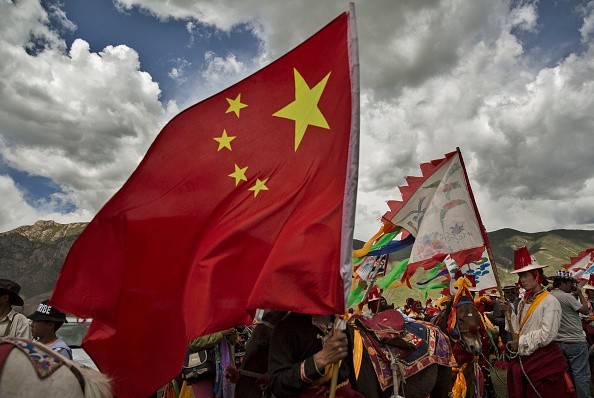Experts who attended the Forum on the Development of Tibet lauded the region's massive development, saying that it has now reached the point where it has become an integral part of the Chinese as well as global economies, China.org reported.
Mewati Sitaram Bholaram, a senior correspondent with India's Mumbai Messenger, remarked that the "Tibetan miracle" comes from the massive effort pulled off by the Chinese government to boost its productive enterprises.
Bholaram added that Tibet's growth may be considered as one belonging to the "fast lane of development" together with other regions across China.
For Beijing-based China Pictorial Magazine's Russian editor Maksim Belov, the development achieved by Tibet was beyond expectations, mentioning that significant achievements were made in health and educational systems despite the region's rough terrain and harsh climate.
Looking back on how the area was doing in the 1950s, Stefano Vernole, a researcher with Italy's Eurasia-Mediterranean Study Center, noted that Tibet has turned to become completely different.
"The Tibetan people have freedom, equality, dignity and enjoy the fruits of modern civilization. Development and progress in the region reflect the common aspirations of all ethnic groups in Tibet," Vernole was quoted as saying.
University of South Africa researcher Farhana Paruk said that the growth has helped establish a better standard of living for Tibetans.
Government data shows that in 2015, the urban residents' per capita disposable income was at 25,457 yuan, much higher than the 1978 figure of 565 yuan. Meanwhile, that of farmers and herdsmen was computed at 8,244 yuan, amounting to a 12-percent increase per year.
Christine Davis, vice president of the U.S. Asia Society, suggested that the region could even play a vital role in the landmark Belt and Road Initiative as it connects Chinese provinces with other areas in South and Central Asia.
The government was also urged to look into sustainable tourism as "this will not only increase the incomes of Tibetans but will promote regional economic growth," Thanong Khanthong of the Thailand National TV Station pointed out.
"Currently, tourists from Russia have to fly to Beijing and change planes to reach [Tibetan capital] Lhasa. We hope a direct flight from Moscow to Lhasa will open soon," Belov said.
The two-day forum held last week was participated by over 130 researchers, officials and media men from more than 30 countries and regions.
The forum, which was hosted by the State Council Information Office in partnership with the Tibetan regional government, focused on discussing the region's enterpreneurship and industrial modernization.
The attendees also tackled environmental protection, regional infrastructure, poverty relief and the preservation of the Tibetan tradition, among others.



























